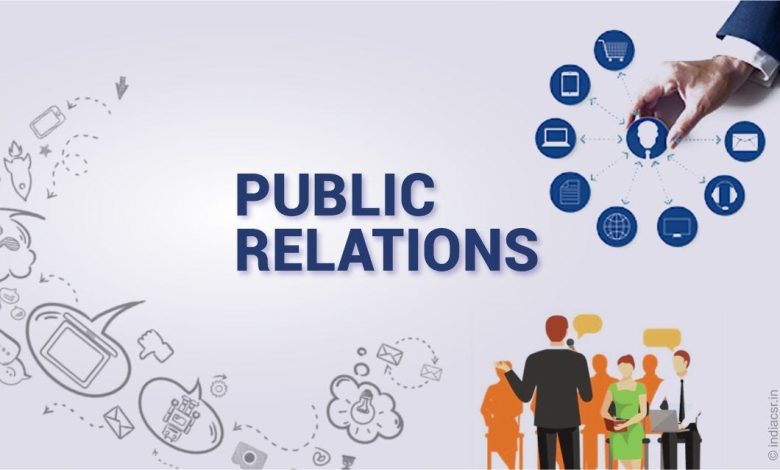How Impact Authority Boosts Your Business with PR Services

In today’s competitive business environment, having a reputable public image is critical for success. Public Relations (PR) firms like Impact Authority offer more than just media coverage—they create a bridge between your business and its target audience, ensuring that your brand message resonates and builds credibility. Impact Authority specializes in PR strategies that enhance brand visibility, build trust, and foster long-term growth. Below, we’ll explore how PR services from Impact Authority can be transformative for your business, helping you to unlock new potential and meet your growth objectives.
What Makes Impact Authority Stand Out?
Impact Authority understands that every business has unique goals and challenges. Their PR services are built on the foundation of tailored strategies, proactive storytelling, and strong media relations, giving them an edge in the competitive PR industry. They are known for their hands-on approach to managing brand perception, ensuring that businesses reach their audience through multiple channels. With an experienced team of PR professionals, Impact Authority designs custom strategies that go beyond traditional PR tactics, enabling brands to thrive in an ever-evolving market.
Building Brand Awareness with Impact Authority
One of the primary goals of PR is to increase brand awareness. Impact Authority does this by targeting high-visibility media channels that can reach your audience effectively. Through strategic media outreach, press releases, and engaging content, they ensure your business gets noticed by the right people. Their PR experts know how to craft compelling brand stories that resonate with audiences, turning unfamiliar brands into household names.
- Customized Media Outreach: Impact Authority develops media lists specific to your industry and target market, maximizing the likelihood of coverage.
- Strategic Press Releases: Their team knows how to draft press releases that capture attention, with a keen sense of timing and placement for maximum impact.
- Content-Driven Campaigns: Impact Authority creates content that draws in your audience, helping them understand your brand’s value and expertise.
Enhancing Credibility and Trust
In PR, credibility is everything. Consumers are more likely to trust a business that appears in respected publications than one that relies solely on advertisements. Impact Authority understands this and focuses on building your brand’s credibility through placements in reputable media outlets. They craft narratives that showcase your business’s expertise, commitment, and values.
- Expert Positioning: Impact Authority positions your business leaders as industry thought leaders, creating opportunities for them to speak at events or be featured in expert panels.
- Credible Media Placements: By securing coverage in respected media outlets, they ensure your brand appears trustworthy and reliable to potential clients and customers.
- Consistency in Messaging: The agency ensures that your brand’s message is consistent across all channels, reinforcing your business’s reputation over time.
Leveraging PR to Drive Customer Engagement
Impact Authority not only aims to increase awareness but also focuses on engagement, a crucial factor for long-term brand loyalty. Their PR services include strategies to create an interactive relationship between your business and your customers. From social media management to influencer partnerships, they know how to create a dialogue that keeps your audience engaged.
- Social Media Strategy: Impact Authority uses social media to foster customer engagement, implementing strategies that amplify your brand’s voice across various platforms.
- Influencer Collaboration: Partnering with key influencers can boost visibility and credibility, and Impact Authority has the expertise to establish these valuable relationships.
- Customer-Centric Campaigns: By focusing on customer interests, they create campaigns that encourage interaction, fostering loyalty and advocacy among your customer base.
Crisis Management: Protecting Your Brand’s Reputation
No business is immune to challenges, but how you respond can make or break your brand’s reputation. Impact Authority excels in crisis management, helping businesses navigate difficult situations with transparency and resilience. When a crisis arises, they act swiftly to minimize damage and communicate with your audience effectively.
- Rapid Response: Impact Authority’s crisis management team is always ready to react quickly, ensuring that any issue is addressed before it escalates.
- Clear Communication: They help your brand communicate with authenticity, addressing concerns honestly and restoring trust among your audience.
- Reputation Rebuilding: After a crisis, Impact Authority works on rebuilding your brand’s image, using a mix of media outreach and strategic messaging to re-establish trust.
Expanding Reach Through Media Connections
A key aspect of PR success is media relations. Impact Authority’s extensive network of journalists, editors, and media outlets provides your business with the visibility it needs. Their team knows how to pitch stories that capture the media’s interest, ensuring your brand remains in the spotlight.
- Relationship-Based Pitching: Instead of relying on generic press releases, Impact Authority tailors pitches to the interests of specific journalists, increasing the chance of coverage.
- Long-Term Media Relations: They cultivate relationships with journalists over time, creating a foundation for ongoing media opportunities.
- Event Opportunities: Impact Authority arranges for your business to participate in relevant industry events, providing networking and exposure opportunities that strengthen your brand’s presence.
Increasing Website Traffic and Online Visibility
Impact Authority knows that online visibility directly impacts your bottom line. PR can play a significant role in improving search engine rankings and driving website traffic. Through media coverage, backlinks, and digital content strategies, Impact Authority helps your website become more discoverable.
- SEO-Optimized Content: They ensure that all PR content is optimized for search engines, increasing your chances of ranking high on relevant keywords.
- High-Quality Backlinks: Every media mention or guest article translates into valuable backlinks, which boost your website’s SEO authority.
- Traffic-Driven Campaigns: By creating campaigns that encourage readers to visit your website, Impact Authority contributes to sustainable traffic growth.
Effective Brand Positioning and Messaging
A strong PR strategy aligns with your brand’s core message and values. Impact Authority specializes in defining and communicating your unique selling points, helping your brand stand out in a crowded market. They position your business in a way that resonates with your audience, building brand identity and customer loyalty.
- Brand Story Development: Impact Authority crafts a unique brand story, helping you connect with customers on an emotional level.
- Clear, Consistent Messaging: They maintain consistency across all messaging, reinforcing your brand identity and making it memorable.
- Strategic Differentiation: By highlighting what makes your brand unique, they ensure that your business is distinguishable in the minds of your audience.
Helping Your Business Grow with PR Analytics
PR strategies are only as good as the results they deliver. Impact Authority is dedicated to measuring and analyzing the effectiveness of their campaigns, ensuring that every strategy is optimized for success. With regular reports and insights, they provide you with a clear picture of how PR is impacting your business growth.
- Data-Driven Decisions: Impact Authority uses analytics to make informed adjustments to campaigns, maximizing their impact.
- Transparent Reporting: They provide regular updates, showing you exactly how your investment in PR is contributing to your business goals.
- Continuous Improvement: By continuously refining strategies based on performance data, Impact Authority helps you achieve sustained growth.
Adapting to Market Changes and Trends
In a world where trends are constantly changing, adaptability is crucial. Impact Authority stays ahead of industry shifts, ensuring that your PR strategy remains relevant and effective. They keep a close eye on market trends, adapting strategies to ensure your business stays current and competitive.
- Trend Analysis: Impact Authority monitors industry trends to identify opportunities for your brand to stay relevant.
- Flexible Strategies: They are quick to pivot and make adjustments, ensuring that your PR efforts align with the latest developments.
- Innovation in PR Tactics: By leveraging new tools and technologies, they offer fresh and innovative approaches that keep your brand in the public eye.
Building Stronger Client Relationships
Ultimately, PR is about building relationships—both with customers and the media. Impact Authority believes in creating authentic connections that drive long-term loyalty. By prioritizing relationship-building in every aspect of their PR services, they help your business create a loyal customer base.
- Community Engagement: Impact Authority encourages brands to actively engage with their local and online communities, fostering a sense of belonging.
- Customer Feedback Integration: They integrate customer feedback into PR strategies, making sure that your brand remains responsive and customer-centric.
- Personalized Communication: Through direct and personalized communication channels, they create stronger bonds with customers, leading to higher retention rates.
PR as a Long-Term Investment for Your Business
Investing in PR is a commitment to building a strong and lasting brand. Impact Authority understands the long-term value of public relations and works to create strategies that yield sustainable results. With their help, your business can develop a positive reputation that stands the test of time, opening doors to new opportunities and partnerships.
- Building Brand Equity: Impact Authority focuses on long-term brand equity, giving you a competitive advantage that cannot be easily replicated.
- Strategic Partnerships: They help foster relationships with other brands, influencers, and industry leaders, creating opportunities for collaborations that enhance your credibility.
- Return on Investment: By consistently delivering measurable results, Impact Authority ensures that your PR investment drives significant returns over time.
FAQs
1. How does Impact Authority measure PR success?
Impact Authority measures PR success through analytics, media monitoring, and audience engagement metrics, providing clear reports that highlight the impact of each campaign.
2. Can Impact Authority help small businesses as well?
Absolutely. Impact Authority customizes PR strategies to meet the needs of businesses of all sizes, from startups to established enterprises.
3. What industries does Impact Authority specialize in?
Impact Authority has experience across multiple sectors, including technology, finance, healthcare, and more, allowing them to adapt their strategies to various industries.
4. How does Impact Authority handle crisis communication?
Impact Authority offers crisis management services that include rapid response, transparent communication, and reputation rebuilding to protect your brand during challenging times.

